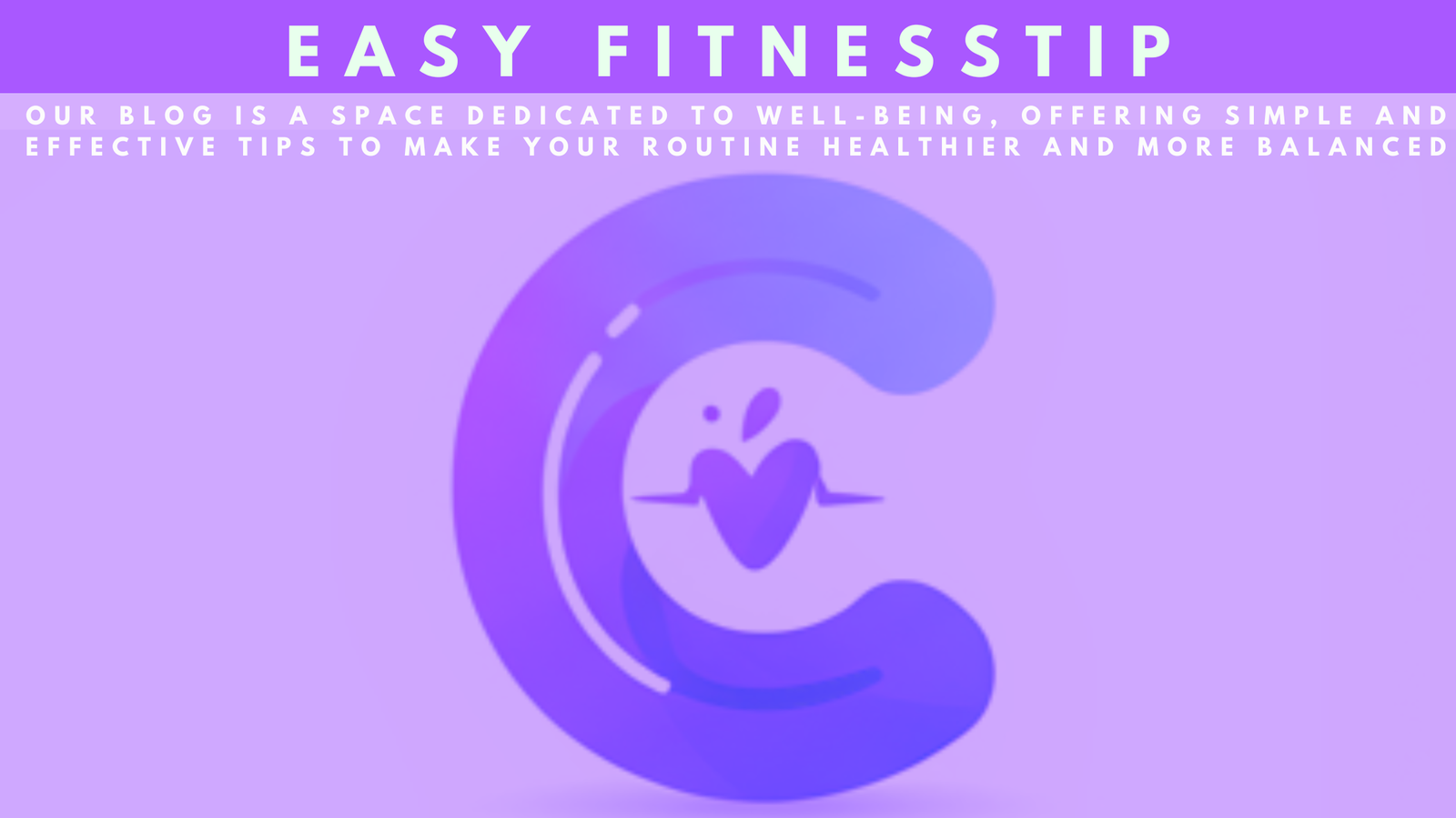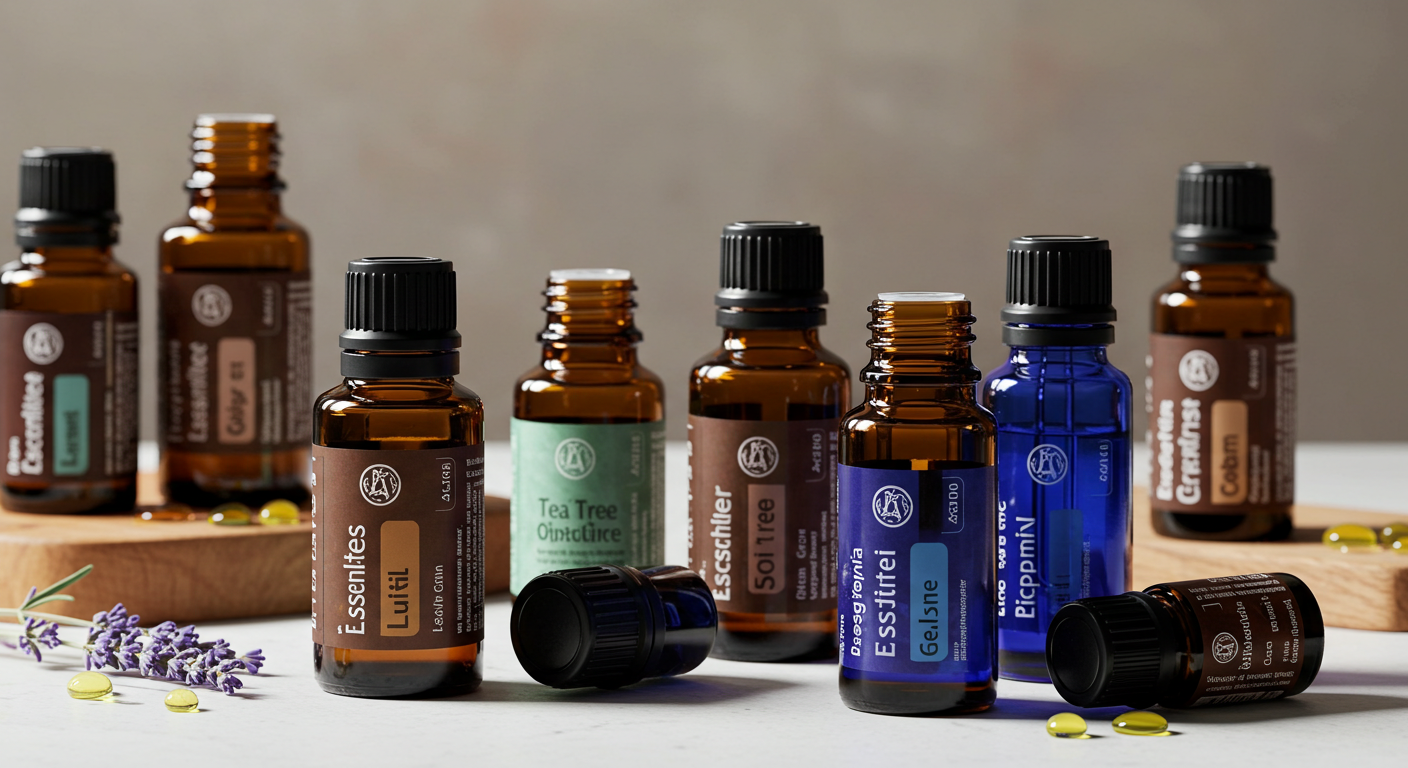
In today’s fast-paced world, many of us are searching for simple, natural ways to improve our overall well-being. Aromatherapy—a practice rooted in ancient traditions—is experiencing a modern revival as individuals discover how essential oils can enhance daily life. From boosting your mood in the morning to unwinding after a long day, essential oils have found their way into countless home routines. In this article, we’ll explore the history and science behind aromatherapy, share practical tips on incorporating essential oils into your daily life, and debunk common myths to help you make the most of these natural remedies.
The Roots and Science of Aromatherapy
Aromatherapy is not a modern invention; it has deep historical roots that span many cultures and continents. For thousands of years, ancient civilizations from Egypt to China used aromatic plants for healing, religious rituals, and personal care.
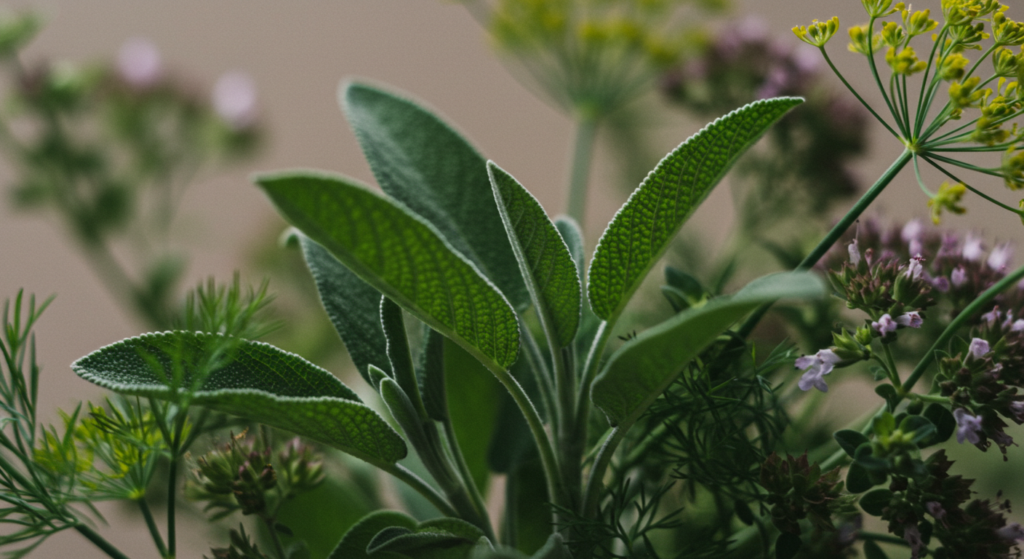
A Brief History of Aromatherapy
Historically, essential oils were revered not only for their pleasing aromas but also for their therapeutic properties. In ancient Egypt, oils such as frankincense and myrrh were used in the embalming process and in religious ceremonies. The Greeks and Romans adopted these practices, integrating the use of fragrant herbs and oils into daily life for both medicinal and cosmetic purposes.
Over time, these traditions spread across the world. Traditional Chinese Medicine and Ayurveda—the ancient Indian healing system—also incorporated aromatic plants and their extracts in their practices. These cultures believed that the scents of natural oils could harmonize the body, mind, and spirit.
The Science Behind Essential Oils
Modern science has begun to validate many of these ancient claims. Essential oils are highly concentrated extracts derived from plants through processes such as steam distillation or cold pressing. They contain volatile compounds that have been shown to exert a variety of effects on the human body.
Research suggests that inhaling essential oil molecules can trigger responses in the limbic system—the part of the brain that controls emotions and memory. This is why a whiff of lavender may soothe your nerves or a touch of peppermint can awaken your senses. Additionally, some studies have highlighted the antimicrobial and anti-inflammatory properties of certain oils, lending further support to their use in daily wellness routines.
While not every claim about essential oils has been backed by clinical trials, many users report noticeable improvements in their mood, energy levels, and overall well-being when incorporating these natural remedies into their lives.
Practical Applications in Daily Life
Now that we’ve explored the origins and science behind aromatherapy, let’s dive into how you can practically incorporate essential oils into your everyday routine. Whether you’re a long-time enthusiast or new to the concept, these practical applications are designed to fit seamlessly into your day.
Home Diffusing Techniques
One of the simplest ways to enjoy the benefits of essential oils is by using a diffuser. Diffusers disperse tiny oil particles into the air, filling your home with a gentle, therapeutic aroma. Here are a few ideas to get started:
- Morning Boost: Start your day with an energizing blend of citrus oils, such as lemon, orange, and grapefruit. Not only do these scents invigorate your senses, but they can also help enhance focus and promote a positive mindset.
- Work-From-Home Ambiance: Create an environment that minimizes stress and boosts concentration by diffusing a mix of rosemary and peppermint oils. This blend can be particularly effective during long work hours or study sessions.
- Evening Relaxation: In the evenings, switch to soothing scents like lavender or chamomile to help signal to your body that it’s time to wind down. Diffusing these oils can create a peaceful environment conducive to relaxation and quality sleep.
When selecting a diffuser, consider factors such as room size, run-time, and ease of cleaning. An ultrasonic diffuser is a popular choice because it not only diffuses the oil but also adds moisture to the air—a bonus during dry weather.
Incorporating Oils into Personal Care
Beyond diffusing, there are many ways to incorporate essential oils directly into your personal care routines. Whether you prefer skin care, bath rituals, or massage therapy, there’s an application method that can help you enjoy the benefits of aromatherapy.
Skincare Enhancements
Many essential oils have properties that can benefit the skin. Tea tree oil, for example, is renowned for its antibacterial and anti-inflammatory properties and can be used to combat acne. Lavender oil, on the other hand, is excellent for soothing irritated skin and reducing redness.
To incorporate essential oils into your skincare routine:
- Dilution is Key: Essential oils are highly concentrated. Always dilute a few drops in a carrier oil (such as coconut or jojoba oil) before applying to the skin.
- Customized Blends: Experiment with blends tailored to your skin type. For dry skin, try mixing a drop of lavender with a moisturizing carrier oil. For oily or acne-prone skin, a blend of tea tree and peppermint oil (diluted appropriately) might be beneficial.
- Spot Treatment: Use diluted essential oils as a spot treatment for blemishes. Ensure you test on a small area first to check for any adverse reactions.
Bath Rituals
Adding essential oils to your bath can transform an ordinary soak into a spa-like experience. A few drops of your favorite oil can elevate your mood, relax your muscles, and even improve skin hydration.
For a calming bath:
- Eucalyptus and Lavender: This combination can help clear your sinuses while promoting relaxation.
- Citrus and Bergamot: For a more invigorating soak, these oils can uplift your spirits and energize you.
- Precautions: Always add essential oils to a dispersing agent like Epsom salt or an emulsifier (e.g., milk or honey) before adding them to your bath water. This helps prevent the oil from sitting on your skin in a concentrated form.
Massage Therapy
Massage is another excellent way to reap the benefits of essential oils. When combined with a carrier oil, essential oils can enhance a massage session by reducing muscle tension and providing a calming sensory experience.
- Muscle Relief: Oils like peppermint and rosemary can help alleviate muscle aches when applied during a massage.
- Relaxation: Lavender and chamomile are ideal for a calming massage that eases both the body and mind.
- Application Tips: Always ensure that the essential oil blend is well-diluted to avoid skin irritation. A general guideline is to use about 3-5 drops of essential oil per tablespoon of carrier oil.
Success Stories and Real-Life Applications
For many people, the transition to a lifestyle that incorporates essential oils has been transformative. Consider the story of Lisa, a busy professional who struggled with work-related stress. By introducing a simple aromatherapy routine—using a diffuser with a blend of lavender and citrus oils—she found herself better equipped to manage stress and maintain focus throughout her day. Her colleagues even noticed a positive shift in her demeanor, remarking on her calm and composed presence during hectic meetings.
Another example is Mark, a fitness enthusiast, who discovered that diffusing eucalyptus and peppermint oils during his home workouts not only enhanced his energy levels but also improved his recovery time post-exercise. These real-life applications highlight that aromatherapy is not just about pleasant smells—it’s a holistic approach to improving one’s quality of life.
Tips, Myths, and Best Practices
While essential oils offer many potential benefits, it’s important to approach their use with informed caution. In this section, we address common myths, share expert tips, and outline best practices to ensure you enjoy aromatherapy safely and effectively.
Common Myths About Essential Oils
Myth 1: Essential Oils Are a Miracle Cure-All
While essential oils can be powerful allies in promoting wellness, they are not a substitute for professional medical treatment. They should be considered as complementary remedies that work best when integrated into a balanced lifestyle.
Myth 2: More Is Always Better
Because essential oils are highly concentrated, using them in excess can be counterproductive or even harmful. It’s crucial to follow recommended guidelines for dilution and application to avoid adverse reactions.
Myth 3: All Essential Oils Are Created Equal
Not all oils are suitable for every purpose, and quality can vary significantly between brands. Look for products that are 100% pure, organic if possible, and sourced from reputable companies. Third-party testing and transparency about sourcing are good indicators of quality.
Expert Tips for Using Essential Oils
Start Slow:
If you’re new to aromatherapy, start with one or two oils to see how your body reacts. Gradually introduce more options as you become comfortable with their effects.
Keep a Journal:
Document your experiences with different oils and blends. Note any changes in mood, energy levels, or physical symptoms. Over time, this journal can help you tailor a personalized aromatherapy routine that best suits your needs.
Consult a Professional:
If you have any pre-existing health conditions or concerns about using essential oils, it’s always a good idea to consult with a healthcare professional or a certified aromatherapist.
Educate Yourself:
Stay informed about the latest research and trends in aromatherapy. Reliable sources, including academic journals and reputable wellness websites, can offer insights into the evolving benefits and applications of essential oils.
Best Practices for Safe and Effective Use
- Dilution is Non-Negotiable:
Always dilute essential oils with a carrier oil before applying them to your skin. This not only prevents irritation but also ensures the oil is absorbed properly. - Perform a Patch Test:
Before using a new essential oil, conduct a patch test by applying a small amount of the diluted oil to a small area of your skin. Wait for 24 hours to check for any adverse reactions. - Proper Storage:
Essential oils should be stored in dark glass bottles away from direct sunlight and heat. This helps maintain their potency and extends their shelf life. - Educate on Usage:
Read the instructions and recommended dosages on each product’s label. Some oils may require special precautions, particularly if you’re pregnant, nursing, or have a compromised immune system. - Use Quality Products:
Invest in high-quality, pure essential oils from reputable sources. Look for products with detailed information on sourcing and production methods.
Embracing Aromatherapy in a Modern Lifestyle
Integrating essential oils into your daily routine doesn’t require a complete lifestyle overhaul. Instead, it’s about making small, mindful changes that cumulatively have a big impact on your overall wellness. Here are a few strategies to help you seamlessly incorporate aromatherapy into your modern life:
Morning Routines That Set the Tone
Start your day by creating a calming and energizing environment. As soon as you wake up, consider diffusing an uplifting blend in your bedroom or living space. A mixture of citrus oils can awaken your senses, while a hint of peppermint can stimulate mental clarity. These simple practices can set a positive tone for the rest of your day.
Creating a Midday Escape
For many, the middle of the day can be challenging—a time when energy dips and stress peaks. Keep a portable essential oil roll-on in your bag, which allows you to refresh your senses during a hectic workday. Whether you’re using it during a quick break or as part of a mini meditation session, these small escapes can make a significant difference in your overall well-being.
Winding Down in the Evening
The end of the day is a crucial time for unwinding and reflecting on the day’s challenges. Using a diffuser in your living room or bedroom with calming oils like lavender and chamomile can signal to your body that it’s time to relax. Incorporate aromatherapy into your nighttime routine by combining it with other relaxation practices, such as gentle yoga or a warm bath. This not only improves your sleep quality but also helps you prepare for the next day with renewed energy.
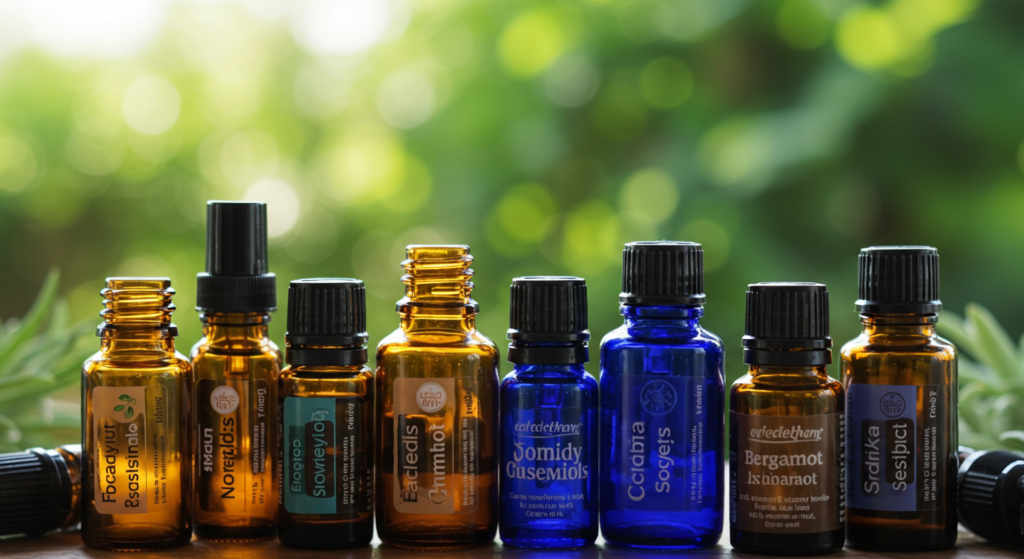
The Future of Aromatherapy and Natural Wellness
As more people turn towards natural and holistic health solutions, the popularity of aromatherapy is only set to grow. Ongoing research continues to shed light on the mechanisms behind essential oils and their potential benefits. In the future, we may see even more targeted applications of these oils based on individual genetic profiles and lifestyle needs.
Moreover, as technology advances, innovations such as smart diffusers and personalized aromatherapy systems could revolutionize how we experience these natural remedies. Imagine a device that adjusts the blend of oils based on real-time feedback from your body—a truly customized approach to wellness.
Addressing Concerns and Overcoming Barriers
Despite the growing popularity of aromatherapy, some people remain skeptical. Concerns often arise around safety, efficacy, and the sheer variety of products available. Here are a few common concerns and how to address them:
Safety First
As discussed, safety is paramount when using essential oils. By following dilution guidelines and performing patch tests, you can mitigate most risks. Educating yourself about the potential side effects and contraindications—especially if you have specific health conditions—can empower you to use essential oils confidently and safely.
Efficacy and Personal Experience
Not everyone will experience the same benefits from a particular oil or blend. Our bodies and senses are unique, and what works wonders for one person might have a subtler effect on another. This is why personal experimentation—supported by research and professional guidance—is key. Keeping an open mind and being patient with the process can lead you to discover the combinations that work best for you.
Finding Reliable Information and Products
In an era of information overload, it’s important to seek out reliable sources and reputable brands. Look for peer-reviewed studies, certifications, and customer reviews that speak to the quality of the product. Trusted wellness websites and professionals in the field of aromatherapy can also provide guidance and reassurance as you build your collection of essential oils.
Final Thoughts: Embrace the Journey to Daily Wellness
Incorporating aromatherapy into your daily life isn’t about making drastic changes—it’s about taking small, intentional steps towards enhancing your overall well-being. The historical significance, combined with modern scientific insights, makes essential oils a fascinating and valuable addition to a holistic lifestyle.
From transforming your morning routine with invigorating citrus blends to creating a peaceful evening sanctuary with calming lavenders, aromatherapy offers a versatile, natural way to nurture both your body and mind. As you experiment with different oils and techniques, remember that your journey is unique. Use the tips, safety guidelines, and expert advice shared in this article to craft a personalized routine that aligns with your lifestyle and wellness goals.
Call to Action:
Now that you’ve explored the many ways essential oils can enhance your daily life, it’s time to take the first step. Experiment with a new oil or blend today, and observe how it transforms your routine. Share your experiences, challenges, and triumphs with our community in the comments below, and let’s embrace the journey to better, more natural wellness together!
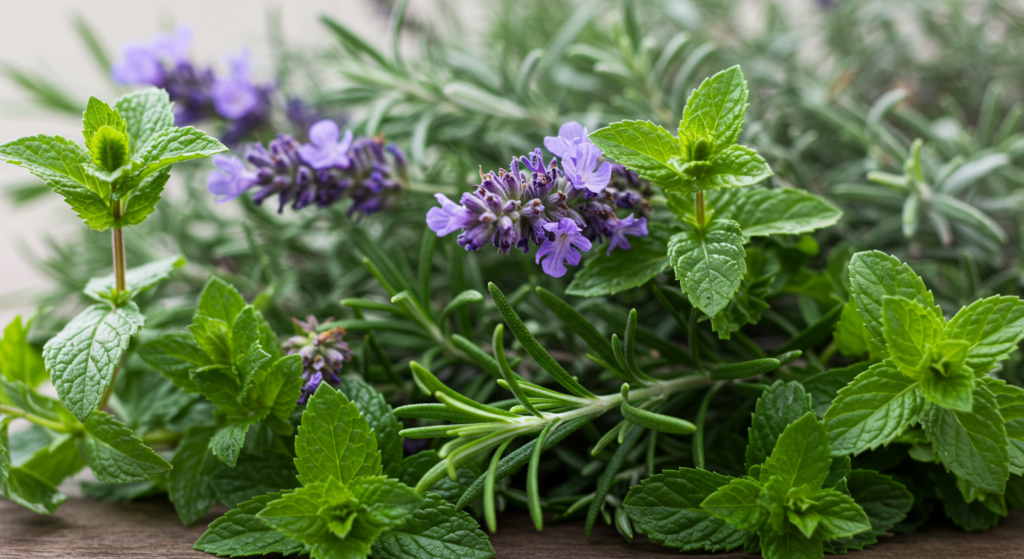
Recap and Key Takeaways
- Historical Roots: Aromatherapy is steeped in tradition, with uses spanning ancient civilizations—from Egyptian rituals to Ayurvedic practices.
- Scientific Insights: Modern research supports many of the benefits attributed to essential oils, including mood enhancement, improved focus, and physical well-being.
- Practical Applications: Whether through home diffusers, skincare routines, baths, or massages, there are numerous ways to integrate essential oils into your daily life.
- Safety and Best Practices: Dilution, patch testing, proper storage, and quality assurance are critical to enjoying the benefits of essential oils safely.
- Personalized Experience: Everyone’s journey with aromatherapy is unique. Keeping a journal and consulting experts can help you tailor a routine that suits your specific needs.
- Future Trends: As technology and research evolve, personalized aromatherapy experiences may become even more accessible, further enhancing natural wellness.
A Closer Look at the Daily Benefits
Imagine starting your day in an environment filled with uplifting scents that energize your spirit, followed by moments of calm during a hectic workday, and finally, a soothing evening routine that primes your body for a restful night’s sleep. The integration of essential oils into these moments is not merely about fragrance—it’s about transforming everyday routines into rituals of self-care and wellness.
Morning: Awakening Your Senses
In the morning, your body and mind are just beginning to stir. By diffusing an invigorating blend of citrus oils, you’re not only filling your space with a delightful aroma but also sending signals to your brain that it’s time to wake up and prepare for the day ahead. Essential oils such as lemon, orange, and grapefruit have been shown to help enhance concentration and boost energy levels. As the aroma fills your room, it can help clear any lingering sleepiness, setting a positive tone for the day.
Afternoon: Sustaining Focus and Reducing Stress
Midday is often when fatigue starts to creep in. A few moments of aromatherapy can provide that much-needed reset. Carry a portable roll-on infused with a blend of peppermint and rosemary oils to keep at your desk or in your bag. A quick dab on your wrists or a gentle inhalation during a break can revitalize your senses and reduce stress, helping you maintain productivity throughout the day.
Evening: Unwinding and Preparing for Rest
At the end of the day, after a long series of tasks and challenges, winding down is essential. Diffusing calming oils such as lavender, chamomile, or sandalwood in your living space can help ease the transition into a peaceful evening. These scents have been known to lower anxiety levels, creating a serene atmosphere that encourages relaxation and quality sleep.
Your Path Forward with Aromatherapy
Embracing aromatherapy is a journey of exploration, learning, and self-discovery. As you begin incorporating essential oils into your daily routine, remember that even small changes can lead to significant improvements in your overall quality of life. Whether you choose to focus on enhancing your mood, boosting your energy, or simply creating a more inviting home environment, essential oils offer a natural and effective way to support your wellness goals.
For those who are just starting out, consider investing in a small selection of versatile oils and a reliable diffuser. Gradually, you may find that certain blends become indispensable parts of your daily rituals. And as you experiment, take the time to reflect on what works best for you—your journey with aromatherapy is as unique as you are.
In conclusion, aromatherapy is more than just a trend—it’s a return to a more natural, mindful way of living. By understanding the history, science, and practical applications of essential oils, you can make informed choices that enhance every aspect of your daily life. With simple yet effective practices, a few drops of your favorite oil can transform your environment, uplift your mood, and help you manage the stresses of modern life.
So why not take a step toward a healthier, more balanced lifestyle? Experiment with these techniques, share your journey, and join a community of like-minded individuals who are rediscovering the power of natural wellness. Remember, every great journey begins with a single step—or in this case, a single drop of essential oil.
Take Action Today:
Explore your local wellness store or trusted online retailer for high-quality essential oils. Start small, be patient with the process, and enjoy the journey toward a more balanced, aromatic, and fulfilling daily routine.
By embracing everyday aromatherapy, you are investing in your health, well-being, and overall happiness. The practice not only connects you with ancient traditions but also provides a modern solution to the challenges of our busy lives. With the right knowledge, a little experimentation, and a commitment to quality, essential oils can become a powerful ally in your quest for a healthier, more balanced life.
Sources:
If you’re looking for further reading or scholarly sources on these topics, you might consider exploring:
- The National Center for Complementary and Integrative Health (NCCIH) for research on essential oils and complementary therapies.
- Peer-reviewed journals such as the Journal of Alternative and Complementary Medicine for studies on aromatherapy.
- Books like “Essential Oils: A Handbook for Aromatherapy Practice” by Jennie Harding for practical and historical insights.
These resources can provide additional detailed information and scientific context on the subject of aromatherapy and the use of essential oils in daily life.
